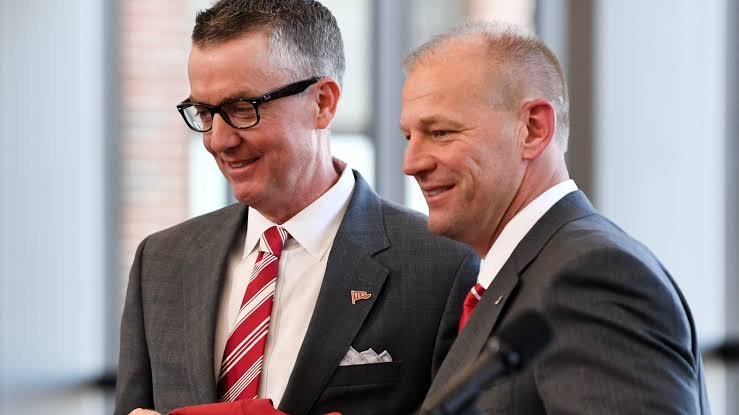As the storm clouds of college football reform gather overhead, the SEC’s spring meetings in Miramar Beach, Florida, have become the epicenter of a brewing revolution. At the heart of the drama? The future of the College Football Playoff—and whether the system will finally reflect the reality on the field rather than the politics in a boardroom.
While the Southeastern Conference has yet to plant its flag on a definitive playoff structure, it’s clear that Alabama, one of the league’s crown jewels, has opinions—and they’re not subtle.
Both head coach Kalen DeBoer and athletic director Greg Byrne took to the microphones this week, peeling back the curtain on what Alabama football wants in a future CFP model. The message wasn’t just strategic—it was impassioned, insightful, and maybe even a little vengeful.
Alabama’s CFP Snub: The Spark That Lit the Fire
The Tide is still smarting from the seismic snub of the 2024 season, when they were left out of the inaugural 12-team playoff in favor of SMU—a decision that left Alabama fans and brass stunned. After enduring a brutal SEC schedule and emerging as one of the nation’s top teams, Alabama watched as a Group of Five program with a considerably weaker slate danced into the postseason spotlight.
It was more than just disappointment—it was a wake-up call.
DeBoer’s Experience: From Sioux Falls to the SEC
New Alabama head coach Kalen DeBoer isn’t new to playoff systems. He cut his teeth in the NAIA, leading Sioux Falls through a 16-team gauntlet where postseason success was earned, not given.
“I’ve lived the playoff grind,” DeBoer told reporters Tuesday. “Four weeks. Sixteen teams. You fight tooth and nail. And I’m open to anything that works—12, 14, 16 teams—so long as it’s fair.”
DeBoer emphasized that the number of teams matters less than how they’re chosen. “Seeding, selection, criteria—that’s the real heart of the issue,” he explained. “The how and the why matter just as much as the how many.”
Byrne’s Perspective: Give the SEC What It Deserves
Greg Byrne was more measured, but equally firm. While acknowledging the variety of proposals on the table—including models that award automatic bids to conference champions or guarantee multiple berths for power leagues—he zeroed in on transparency and fairness.
“What we want, and what the sport needs, is clarity,” Byrne said. “How do you get in? What matters—wins, losses, strength of schedule? We need more than bullet points. We need guidelines that reflect what happens on the field.”
And let’s be honest—when Byrne says “we,” he means the SEC. And when he says “clarity,” he means respect for a conference that routinely plays the nation’s toughest schedules.
“We were told strength of schedule was the top factor,” Byrne added. “But last year, it didn’t feel like that mattered. The SEC has earned the benefit of the doubt, and we need a system that recognizes that.”
What’s Next?
The SEC’s spring meetings will run through Thursday, and the future of the College Football Playoff is just one of several high-stakes discussions on the docket. But make no mistake—this isn’t just a routine scheduling talk. It’s a battle for legitimacy, recognition, and power in a rapidly shifting college football universe.
The question is no longer if the playoff format will change—but how, and whether the SEC, with Alabama leading the charge, will bend the system to finally reflect its dominance.
Will the playoff evolve into a true meritocracy—or continue to fuel controversy? The answer may lie on the whiteboards in Miramar Beach.

